Sam Beste has spent a lifetime crafting his distinctive voice as an artist, drawing from a variety of influences that range from soul, jazz, and avant-garde music to the ever-expanding realm of contemporary electronic sounds. From early childhood, he has been shaped by his father's eclectic record collection and pivotal piano lessons. By his mid-teens, he was already playing alongside some of the most renowned figures in modern music, including performing live as Amy Winehouse's pianist during her ascendant career.
In his twenties, Sam formed the alt-soul outfit Hejira, releasing groundbreaking music while simultaneously co-founding the Lima Limo collective and label. This collaborative community allowed him to explore new sonic horizons and develop his solo project, The Vernon Spring. By 2021, Sam self-released his debut album A Plane Over Woods, followed by the EP Earth, On a Good Day in 2022.
In this intimate conversation, Sam opens up about his latest album, Under a Familiar Sun. Through candid reflections on his own life experiences—ranging from the joys of fatherhood to the contradictions inherent in both spirituality and politics—Sam unravels the central themes of the album. He delves into the delicate balance between sparse lyricism and intricate melodies, explaining how collaboration has shaped the sound of Under a Familiar Sun in ways both profound and unexpected.

Arina Korenyu: The album's concept deals with the contradictions of perception—how something familiar can also feel alien. How, in your opinion, did it manifest in the album?
Sam Beste: I often find it easiest to explain this with an example from my everyday life, particularly with my children. In daily life, you can see them in a certain way, but sometimes, when your heart and perception are open, whether for a specific reason or not, you see them more clearly for who they truly are. They are little miracles. And in a sense, we all are.
That's a small example of how our perception can sometimes be clouded, preventing us from experiencing life more deeply. I’m exploring how that idea crosses over into spirituality and politics on this album. I'm also trying to understand my responsibilities in all of this. It starts with the desire to be deeply present in my life and understand what that means. For me, it's about showing up for the joy, the sorrow, and the political responsibility that comes with it. I'm trying to figure out what that means for me, considering my own position and past.
Arina: You blend sparse lyricism with intricate melodies in several tracks. How do you decide when to let the music speak for itself and when to introduce lyrics? Is there a specific track where you felt this balance was especially important?
Sam: I often end up with more words at first, but then I find myself cutting a lot of them out. It feels more authentic to me to keep it simple, with fewer words, creating a balance between the music and the lyrics. There are exceptions when collaborating with others, where the pieces tend to be longer. But the lyrics are generally pretty fragmented and don't give away too much. They're more like a part of the larger whole—almost like a collage in some ways. It's one way to look at it.
The first is the title track, "Under a Familiar Sun." Originally, it had lyrics, and I had lyrics throughout the whole piece, but over time, I kept stripping them away. By the end, the only vocals left on the track are aden singing a long "ah," which is very subtle in the background. It felt like the emotion in the song was coming more from the music than the lyrics. It's about finding that balance—you're always searching for it, but sometimes it's hard to see. You keep chipping away, trying to find where the music itself really "sings," and sometimes it's without literal singing. Sometimes, vocals can mask the emotion or make it less powerful. So that's one example.
The second example is about my relationship with my voice, both in terms of being a person and expressing what I have to say, and also in terms of my singing voice. I've always sung and been interested in it, but there's always tension about how much to use my voice in the music. The latest single, “Other Tongues,” originally had all of my voice, but now my vocals are still there, but they're mostly just effects and more in the background around aden's voice. aden re-sung and re-performed the lyrics and the melody, and it felt so much more complete.
With my own voice, I feel like it works better as part of the texture, part of the fabric, rather than being front and center. The piano, for me, is like the lead voice. It's only when there's a guest vocalist that my voice steps forward a little bit more.
Another example is the next single, "Esrever Ni Rehtaf," which is "Father in Reverse" (that's the title). I don't know if I should reveal that secret, but it does tie into the record’s themes. Initially, it was a song called "Father in Reverse," and it had a completely different melody and lyrics, but I felt they weren't strong enough, so most of it is gone now. Tiny fragments remain, mainly in the form of samples of myself, but aden wrote a beautiful new melody for it. That was their contribution to the track.
Arina: In previous works, you've worked in single-day sessions. How did the more intricate and iterative production process for Under a Familiar Sun change how the songs evolved?
Sam: Yeah, that's a nice question. I think there are a number of factors that contributed to why I worked differently this time. Part of it is just the passing of time. When you've done something a certain way, you naturally get curious to try something new.
Over the years, I've developed a deeper interest in production. It's always been a part of my compositional voice, but it's grown and evolved more recently. That's definitely been a bigger influence on The Vernon Spring. I think it's also because I had more space this time around. When making my earlier records, I often only had a day in the studio and had to work quickly.
Arina: It's interesting because I thought you would have less time now as a father of three children.
Sam: To be honest, I think the reason it took me longer this time wasn't so much because of family responsibilities—it's more artistic. With this album, the music wanted to have more layers of production, which naturally made the process take longer. More layers mean more time spent solving the puzzle and adding more pieces. On my earlier records, things were more minimal—sometimes just three elements in a track—and I'd find all those elements in one day, mixing them as I went. It all happened pretty quickly.
I'd love to go back to that sometime—capturing something in just one day is refreshing. But I also really enjoyed having the space to work on this project over a longer period. As a result, it has more sonic complexity, and it's a bit of a different journey. Plus, it allowed for more collaboration, which has been a great part of the process.
Arina: Speaking about collaborations, on Under a Familiar Sun, you explore "unheard sound fields" with the help of co-producer Iko Niche. Could you describe how Niche helped you push the boundaries of your sound and what the working process was like?
Sam: Yeah, this whole process allowed me to explore new soundscapes, and I think it's safe to say that Iko Niche played a huge role in pushing the boundaries of my sound. This collaboration allowed me to experiment more intensely with production. It's a hip-hop-influenced style, with a much more intense production process, though it still includes a lot of piano, just heavily processed.
When it comes to music, the process is always quite abstract. I don't always have a concept when I start. I just show up in the studio, work on something, and gradually, like a sculptor working with clay, something begins to take shape. It's not always clear at first what you're making, but as you keep working, something emerges. It's a bit of a mystery, but it's important to have faith in that process. When I reach a point where the work feels finished, it's fascinating how what I've been exploring—both consciously and subconsciously—becomes part of the final piece, blending through this abstract journey. There's no rhyme or reason to it. I can only rely on showing up every day and chipping away at it.
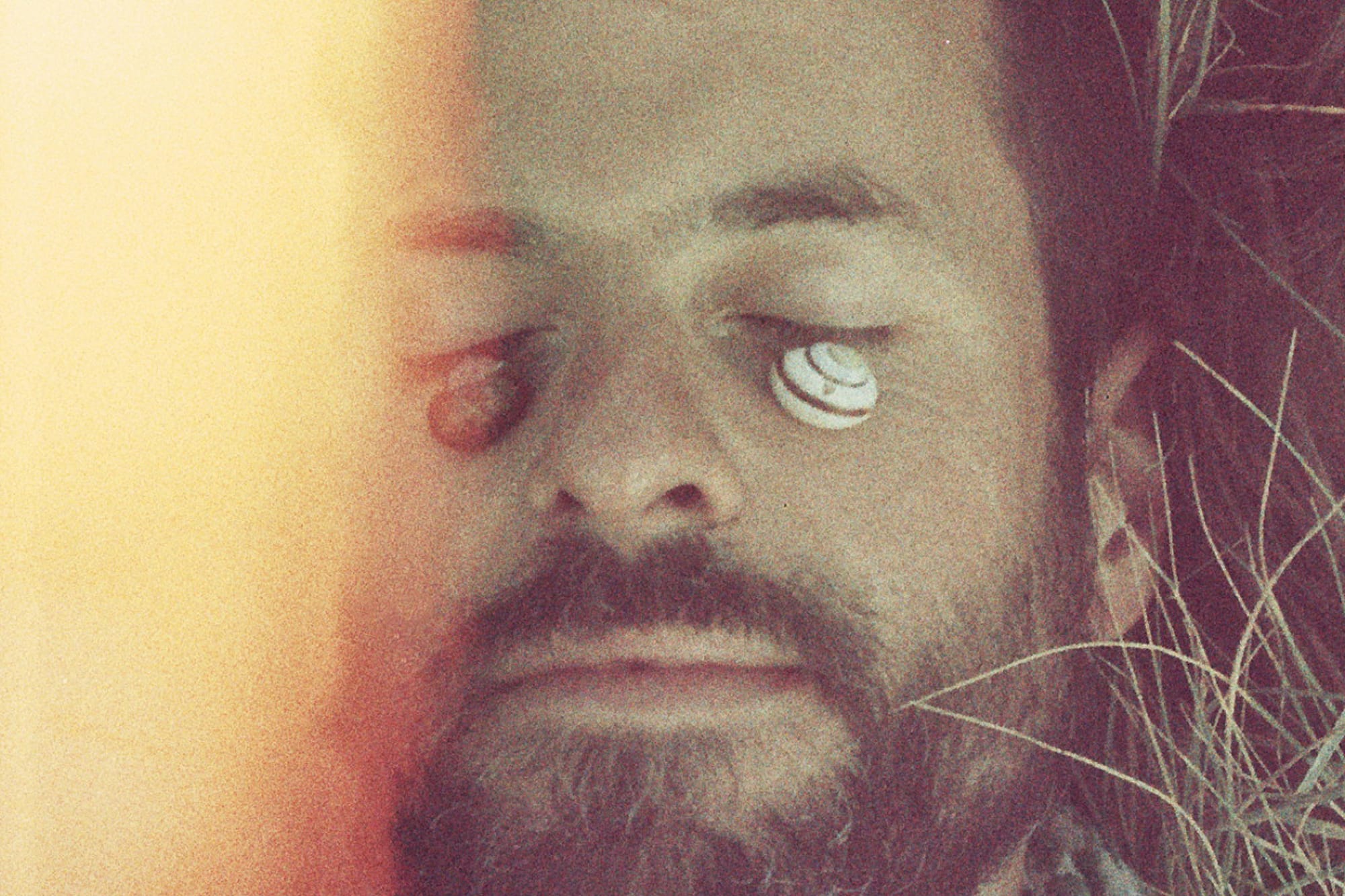
Arina: This album also features other collaborations. Can you describe how these collaborations came about and how they impacted the album’s overall direction?
Sam: On this record, there are four key collaborators outside Iko Niche: Max Porter, Kate Ellis, Calum Duncan, and aden. Each played a vital role in the album's creation, and I met them in different ways.
Lyrically, some of the songs were written by collaborators. For example, Max Porter wrote the longer piece in "The Breadline,” and my friend aden wrote the lyrics for two songs. We worked very closely together, collaborating in a way that felt more like a friendship than just a professional partnership. Many of the album’s themes came from these deep conversations, especially with Max, who helped capture this moment in time.
Calum and I go way back. I've known him the longest. We're in a band together called Hejira and have made records together. I also co-run a music collective called Lima Limo, and Calum is a part of that. Calum is what we call the "chef" because whatever ingredients you give him, he can turn them into something interesting with his esoteric outboard gear. He works a lot with guitar effects pedals, but also has a variety of other tools. He brought mostly textural elements to the album, helping expand its sonic landscape. He also played a big role on the final day of mixing "Father in Reverse (Esrever Ni Rehtaf)." He's a very close friend and was really part of the family that brought everything together.
aden, I've known a bit less time, but they're still one of the closest collaborators. aden first got in touch with me years ago, maybe around seven years ago now, after coming to one of my early The Vernon Spring shows. They introduced themselves afterward and, strangely, asked if I would give them piano lessons, which is how our friendship began. We did some piano lessons, but I quickly realized aden was an incredible artist. Over time, we started collaborating, and when I released my first album, A Plane Over Woods, aden was one of the people who responded by adding vocals to tracks. That led to the Earth, On a Good Day series, which deepened our collaboration.
This album was the first time we wrote new material together in the studio, rather than reworking older tracks. For example, "Counted Strings" came together in one day. I already had the musical sketch, but no melodic material, and aden and I built it from there. They're a phenomenal musician and person, very compassionate and deeply invested in the heart of the music. Their lyrical contributions are so in tune with the album’s themes because they come from our heartfelt conversations. I'm so grateful to have made this music with them.
Max Porter and Kate Ellis are two other vital collaborators. I met both of them at an incredible festival called Sounds from a Safe Harbour in Ireland, which happens every couple of years. I was invited to be a resident artist at the festival, where you work with other artists throughout the week and then perform at the end. I performed with Max and Kate that week, and we became friends. Both of them are amazing people.
Max played a significant role in "The Breadline," where I struggled to figure out the song’s first half. It felt incomplete, but not because it lacked a melody. After working with Max, his voice just clicked in my head, and I felt like he would understand what the song was about. I sent him the music in the morning, and by lunchtime, he sent me the full piece. He works very quickly but deeply, and he's incredibly generous. He says, "Take whatever you want, discard whatever you don't," and it was his voice that gave the track a conceptual framework. His writing for "The Breadline" delves into human compassion and the illusion of separation between people, which leads to so much conflict.
Kate, a phenomenal cellist, also added so much to the album. She and I share a deep love of improvisation. She often prefers not to hear the music before recording—she just presses the record and responds in the moment, without even knowing what key the piece is in. From that initial response, she layers her work, creating something magical. I feel incredibly lucky to work with such talented, passionate collaborators, and I hope we can continue collaborating for the rest of our lives.
Arina: On the twenty-second of May, you are also starting your tour with the album. Anything you want to share about what people can expect at your shows?
Sam: As for the album tour, I'm so lucky that Calum and aden will be with me. It will be a power trio, and I can't imagine better people to bring this music to life with. It's early to say exactly how it will go, but I really hope we can bring the album to life in a way that gives it new energy. There will be a balance between playing the songs as they are and improvising in the moment. I love being in a musical space where you don't quite know what will happen next, so I hope we can stretch the material out and offer new versions of the songs each night. That's the goal—to keep it dynamic and alive.
Arina: Finally, what would you like the listeners to take from the album?
Sam: It feels like we're in a very painful and politically divided period, but at the same time, there's hope because people are coming together, and there's a humanity that shines through.
At the heart of the album, beneath all these themes, is a deep belief in the goodness of humanity. Despite everything going on in the world, that's the fundamental emotion I want to convey. I've listened to the album many times, and sometimes I can't quite hear the emotion because I'm too familiar with it, but every so often, when I break through that familiarity, it comes through again: a belief in goodness.
That's what I hope will come through for others as well. Despite all the chaos, there's a deep-seated faith that we'll survive and find a way through. It may sound grand, but in a world that feels increasingly upside down and alienating, we need to hold on to some kind of hope.
Purchase The Vernon Spring's Under a Familiar Sun from RVNG Intl. or Bandcamp and listen on your streaming platform of choice. Follow The Vernon Spring on Instagram.
Check out more like this:
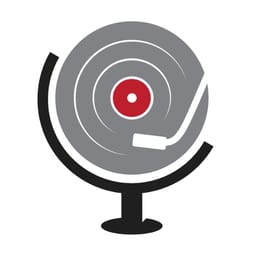 The TonearmArina Korenyu
The TonearmArina Korenyu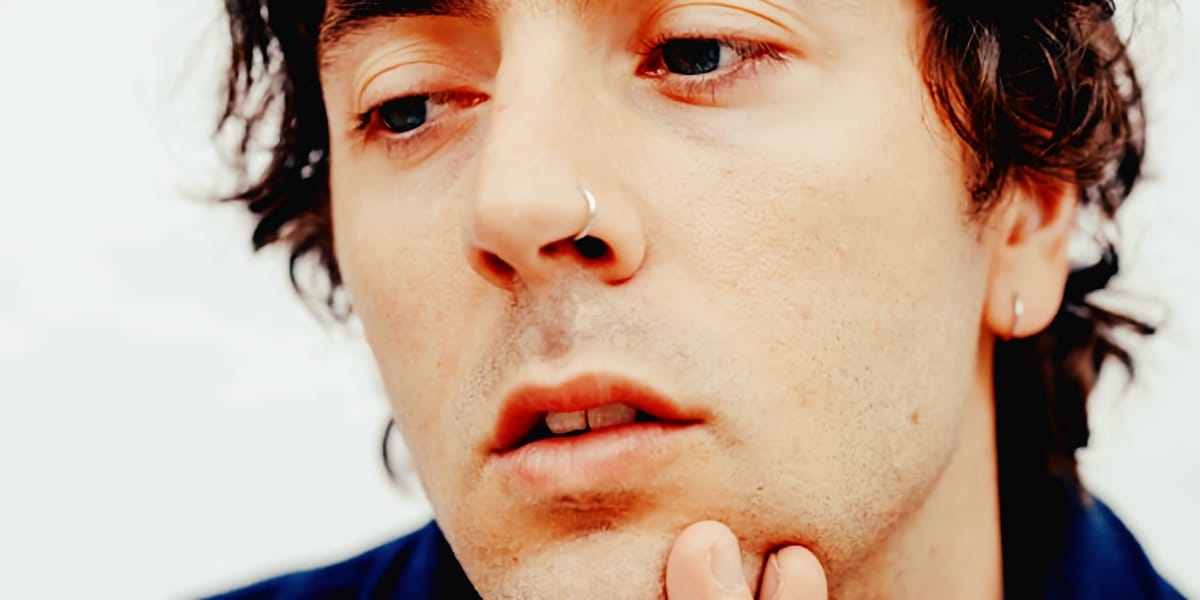
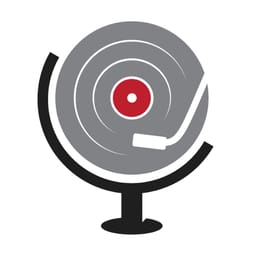 The TonearmMichael Donaldson
The TonearmMichael Donaldson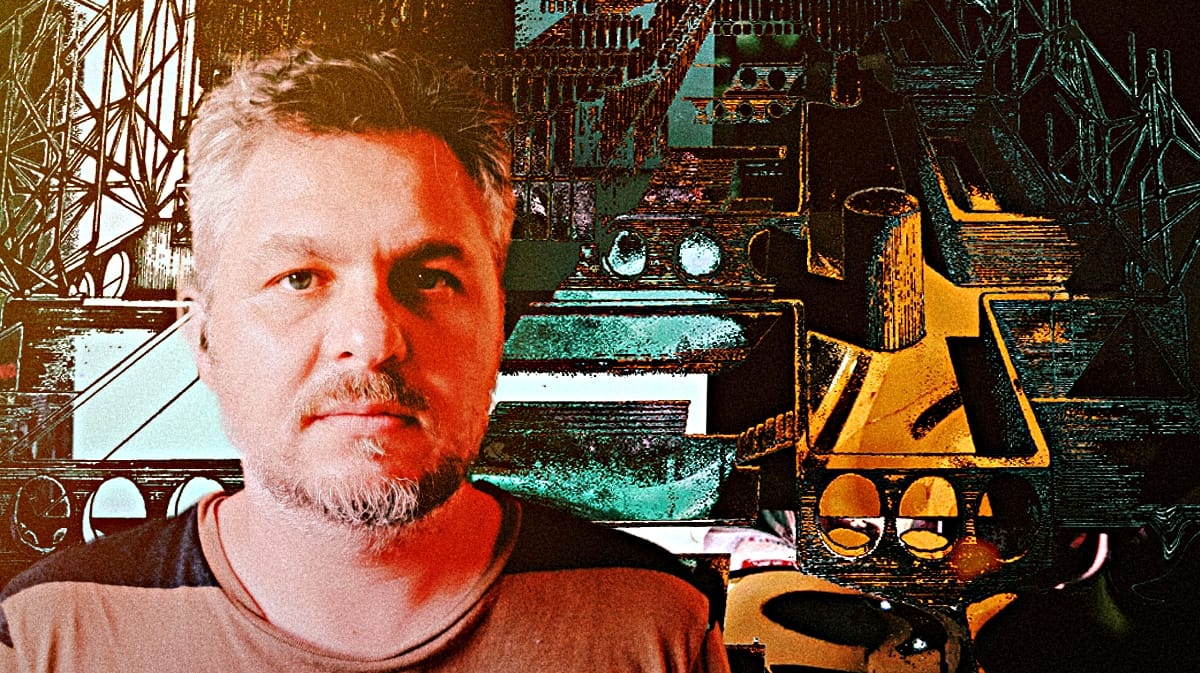


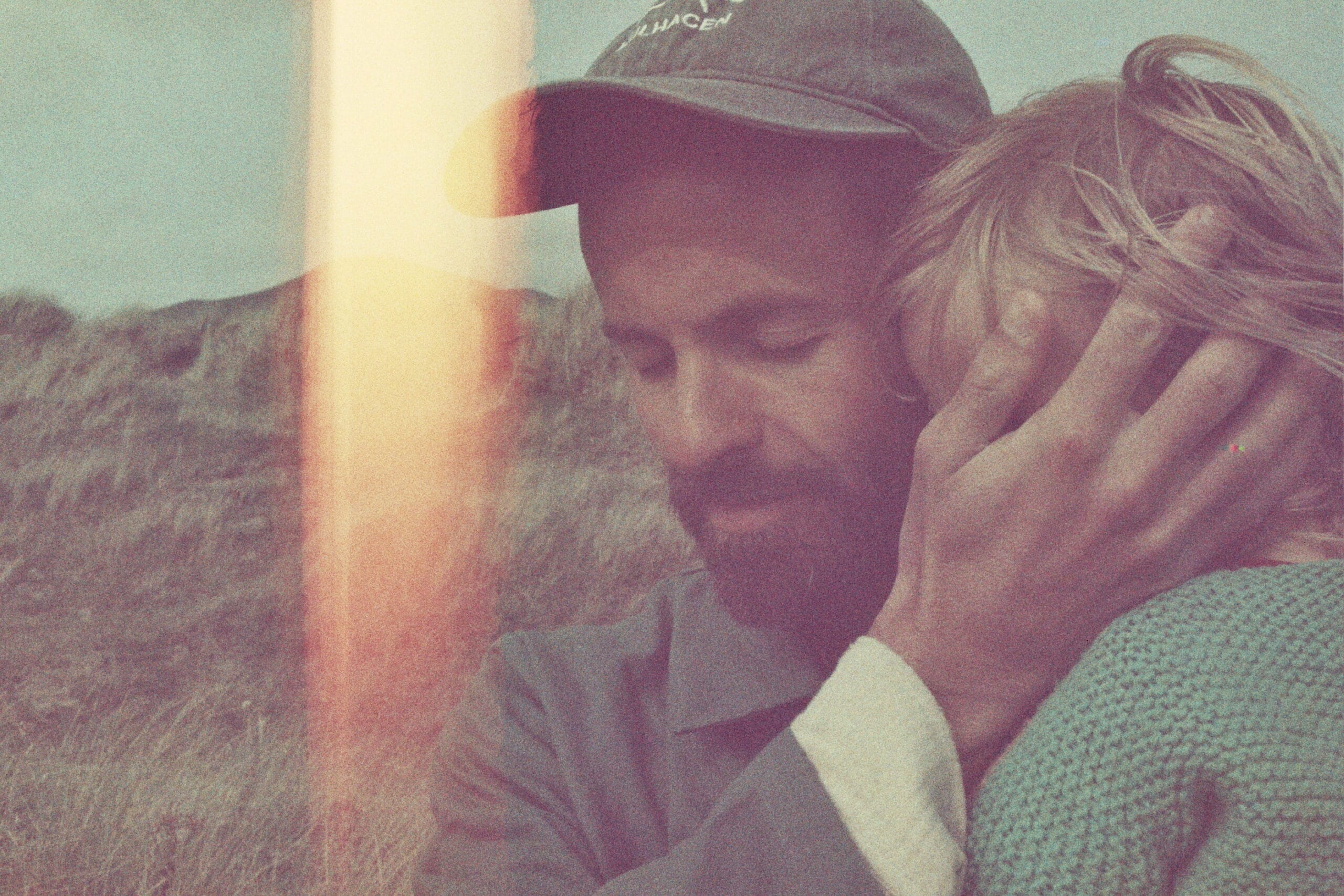
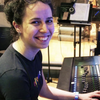
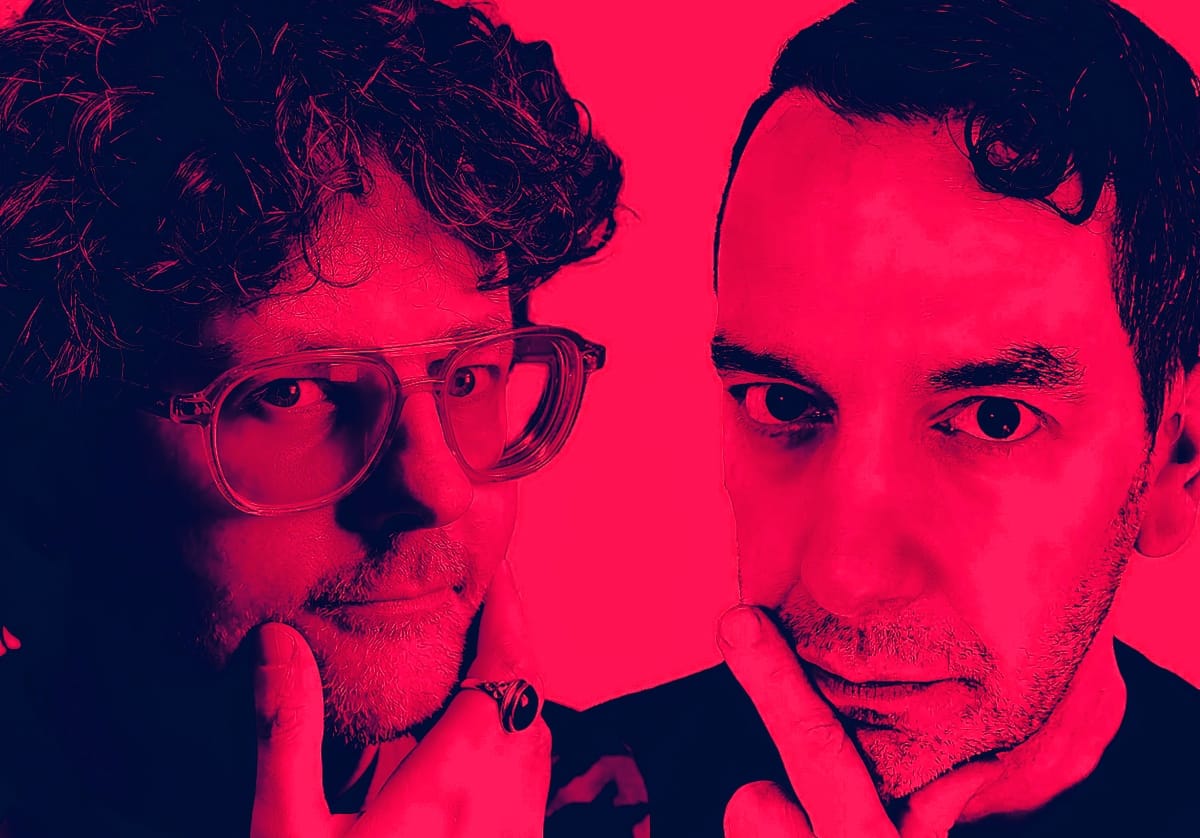
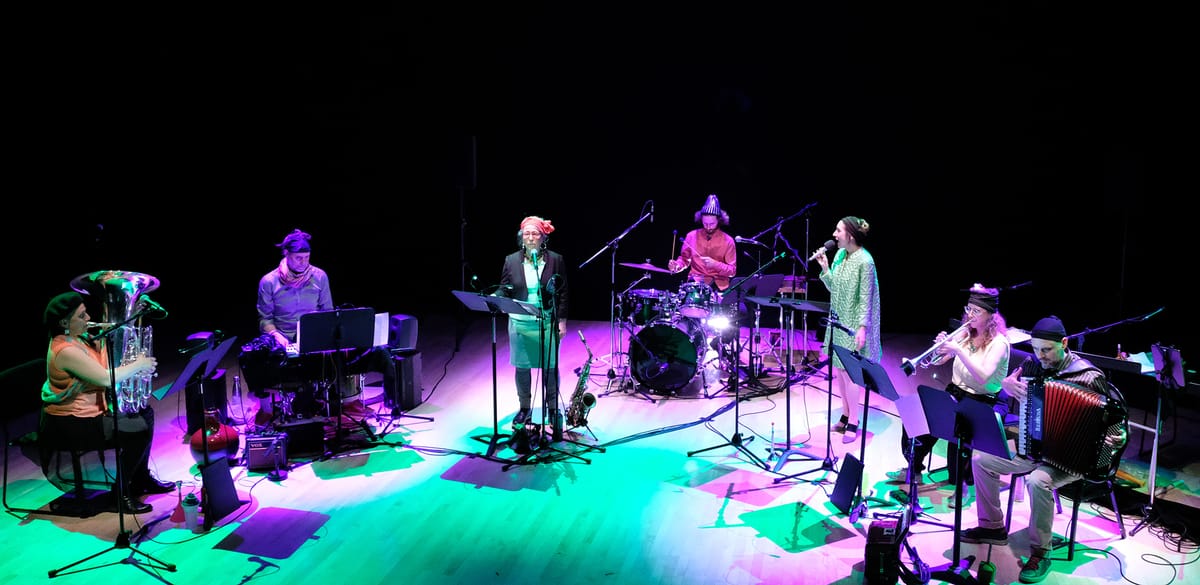
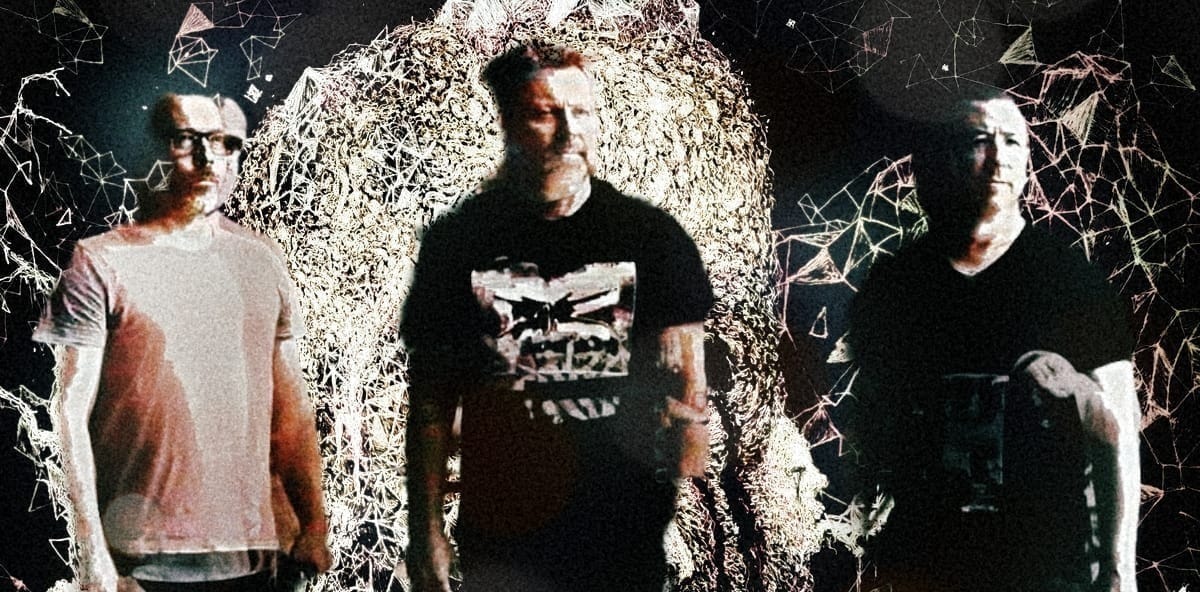
Comments